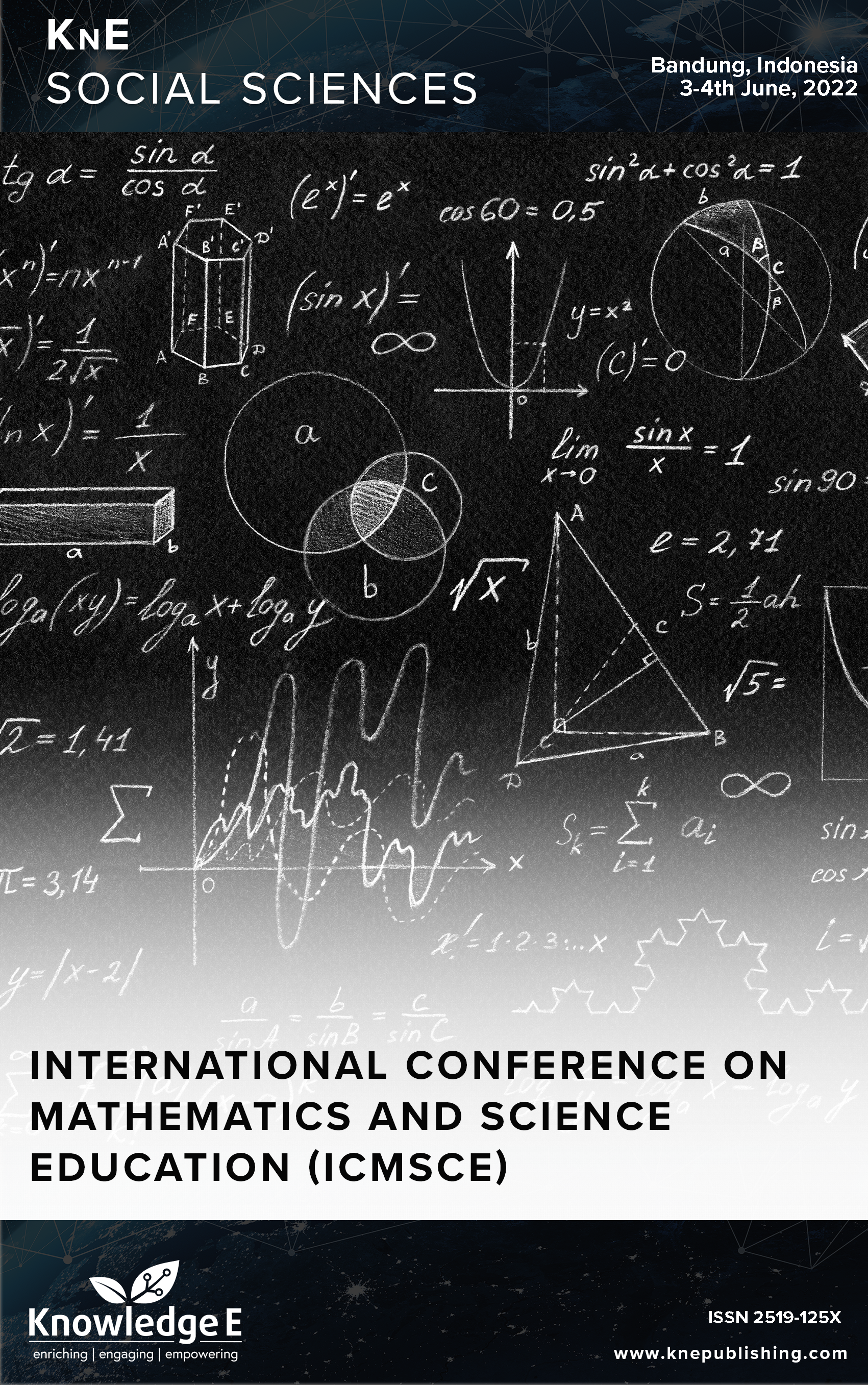The Effectiveness of Learning Google Meet Assisted by the Geogebra Application to Improve Students' Understanding of Mathematical Concepts
DOI:
https://doi.org/10.18502/kss.v9i8.15612Abstract
Due to the Covid-19 pandemic, online learning has decreased the comprehension of students’ mathematical concepts.. It is very important to instill conceptual understanding in students, in order for them to think and solve problems correctly and appropriately. Students experience difficulties in learning and understanding mathematical concepts, especially when the material provides changes to different problems. This paper aims to find out how far the effectiveness of Google Meet learning is achieved with the help of the GeoGebra application to improve students’ understanding of mathematical concepts. This study uses a quasi-experimental method with sampling using a simple random sampling technique. This research was conducted in one of the high schools in the city of Bandung with the selected sample being class XI MIA 5 as the experimental class, while XI MIA 3 as the conventional class. The instrument used was the Mathematics Preliminary Knowledge test, which is a test of the ability to understand mathematical concepts. This shows that there is an increase in the ability to understand students’ mathematical concepts between the experimental class and the control class. Learning mathematics through Google Meet assisted by the GeoGebra application provides opportunities for students to be able to actively participate in mathematics learning activities through graphic visualization media. It also fosters interest, enthusiasm, and motivates the students in improving their conceptual understanding of mathematics.
Keywords: geogebra application, google meet, understanding of mathematical concepts
References
Sumarjono, The concept and meaning of learning. PT. Juvenile Rosdakarya, Bandung, 2004.
Al Mutawah MA. A.M., R. Thomas, A. Eid, E. Mahmoud, and M. Fateel, “Conceptual understanding, procedural knowledge and problem-solving skills in mathematics: high school graduates work analysis and standpoints.,”. International Journal of Education and Practice. 2019;7(3):258–73. DOI: https://doi.org/10.18488/journal.61.2019.73.258.273
Septian A. Student’s mathematical connection ability through geogebra assisted project-based learning model. J Elem. 2022;8:89–98. DOI: https://doi.org/10.29408/jel.v8i1.4323
Majerek D. “Application of geogebra for teaching mathematics.,” Advances in Science and Technology Research Journal. vol. 8, p. 2014. https://doi.org/10.12913/22998624/567. DOI: https://doi.org/10.12913/22998624/567
Guido RM. Evaluation of a modular teaching approach in materials science and engineering. Am J Educ Res. 2014;2:1126–30. DOI: https://doi.org/10.12691/education-2-11-20
Sugiyono, Metode penelitian kuantitatif, kualitatif, dan R&D. Alfabeta, Bandung, 2016.
Lestari KE, Yudhanegara MR. Penelitian pendidikan matematika: panduan praktis menyusun skripsi, tesis, dan laporan penelitian dengan pendekatan kuantitatif, kualitatif, dan kombinasi disertasi dengan model pembelajaran dan kemampuan matematis. Bandung: Refika Aditama; 2018.
Aldila S, Mukhaiyar R. Efektivitas model pembelajaran problem based learning pada mata pelajaran dasar listrik dan elektronika di kelas x SMK Negeri 1 Bukit Tinggi. Ranah Research. 2020;2(2):51–7.
Vogt W. “Effect Size (ES).,” Dictionary of Statistics & Methodology. no. 1993, p. 2015.
Birgin O, Uzun Yaz??c?? K. The effect of geogebra software–supported mathematics instruction on eighth?grade students’ conceptual understanding and retention. J Comput Assist Learn. 2021;37(4):925–39. DOI: https://doi.org/10.1111/jcal.12532

